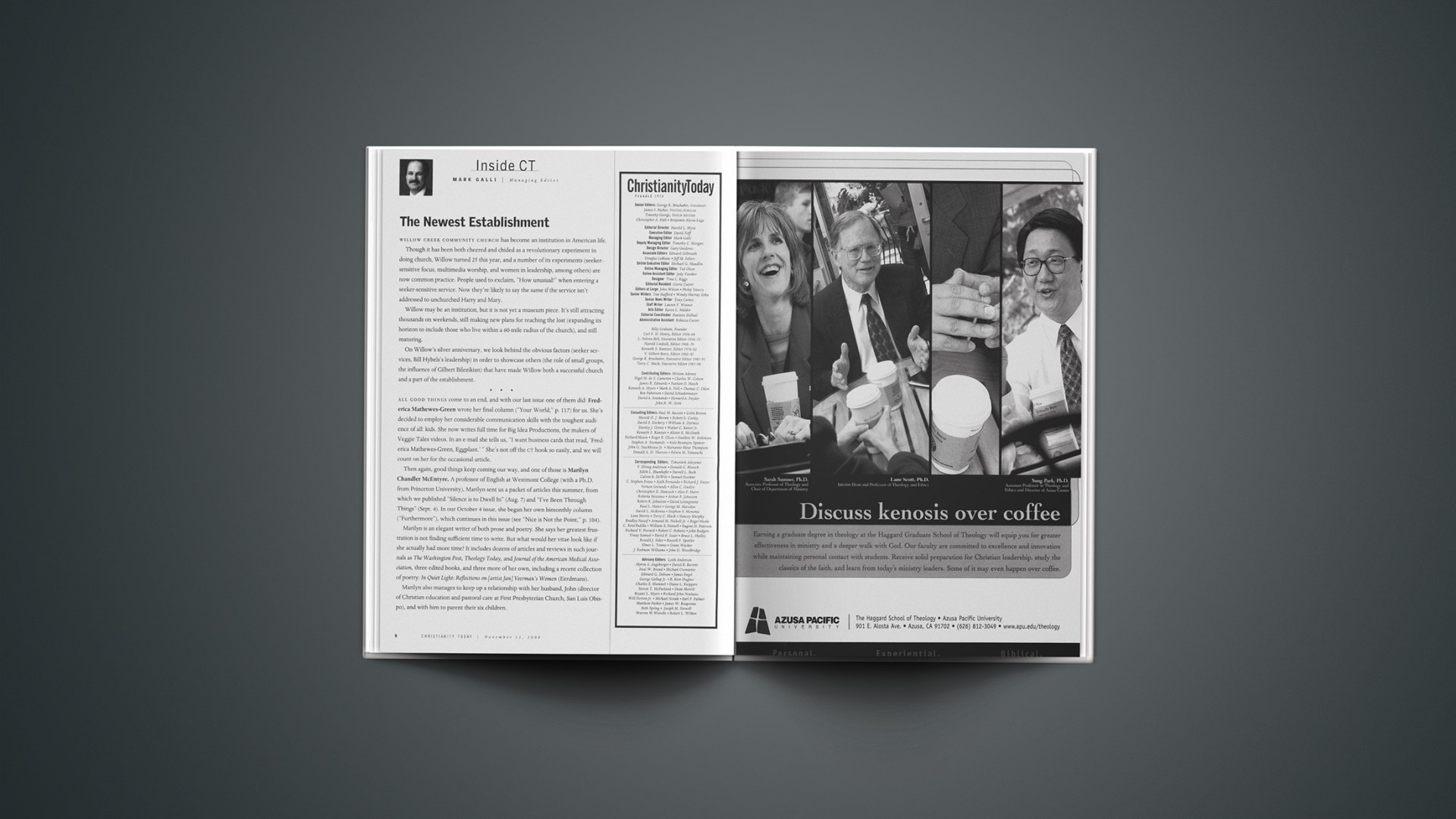Willow Creek Community Church has become an institution in American life.
Though it has been both cheered and chided as a revolutionary experiment in doing church, Willow turned 25 this year, and a number of its experiments (seeker-sensitive focus, multimedia worship, and women in leadership, among others) are now common practice. People used to exclaim, “How unusual!” when entering a seeker-sensitive service. Now they’re likely to say the same if the service isn’t addressed to unchurched Harry and Mary.
Willow may be an institution, but it is not yet a museum piece. It’s still attracting thousands on weekends, still making new plans for reaching the lost (expanding its horizon to include those who live within a 60-mile radius of the church), and still maturing.
On Willow’s silver anniversary, we look behind the obvious factors (seeker services, Bill Hybels’s leadership) in order to showcase others (the role of small groups, the influence of Gilbert Bilezikian) that have made Willow both a successful church and a part of the establishment.
All good things come to an end, and with our last issue one of them did: Frederica Mathewes-Green wrote her final column (“Your World,” p. 117) for us. She’s decided to employ her considerable communication skills with the toughest audience of all: kids. She now writes full time for Big Idea Productions, the makers of Veggie Tales videos. In an e-mail she tells us, “I want business cards that read, ‘Frederica Mathewes-Green, Eggplant.’ ” She’s not off the CT hook so easily, and we will count on her for the occasional article.
Then again, good things keep coming our way, and one of those is Marilyn Chandler McEntyre. A professor of English at Westmont College (with a Ph.D. from Princeton University), Marilyn sent us a packet of articles this summer, from which we published “Silence is to Dwell In” (Aug. 7) and “I’ve Been Through Things” (Sept. 4). In our October 4 issue, she began her own bimonthly column (“Furthermore”), which continues in this issue (see “Nice is Not the Point,” p. 104).
Marilyn is an elegant writer of both prose and poetry. She says her greatest frustration is not finding sufficient time to write. But what would her vitae look like if she actually had more time? It includes dozens of articles and reviews in such journals as The Washington Post, Theology Today, and Journal of the American Medical Association, three edited books, and three more of her own, including a recent collection of poetry: In Quiet Light: Reflections on [artist Jan] Veerman’s Women (Eerdmans).
Marilyn also manages to keep up a relationship with her husband, John (director of Christian education and pastoral care at First Presbyterian Church, San Luis Obispo), and with him to parent their six children.
Copyright © 2000 Christianity Today. Click for reprint information.









